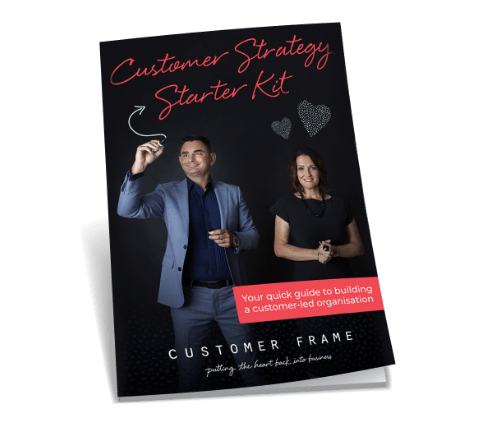Part of being future proof + having a sustainable business is about remaining relevant to your customer in changing times.
Technology advances, changing customer expectations, global-localisation, (anti-)social media, global warming + industry disruption are all impacting on the status quo for a business. The only certainty is change. The challenge is to remain relevant in an increasingly turbulent environment, that distracts you from your core purpose.
Relevance Starts With Your Customers
By remembering the real reason your business or organisation exists (hint: your customers) can be liberating yet also challenging for many.
As many businesses are built on historical inertia, it is easy to lose touch with the fact that people choose to buy your products. Customers don’t make rationale choices – unlike what marketers or technical people lead you to believe. ‘Features and benefits’ are from a bygone era – one where the product was king, invented and then ‘sold in’ to a market. There is more to it and it requires soul and connection.
The Answer Is In Your Future
Remaining relevant is about seeing into the future with some level of accuracy and using insight to change + adapt. If you can pre-empt where customer needs are heading you have the game sewn up.
So, how can do you that? Market research? Crystal ball?
Nope.
It’s In Your DNA
- It starts by understanding who your customers really are – and not just the ones that are buying from you today. Broaden your view to consider people who might intend to buy from you. This is where the growth liberation starts to occur and sets you up for long-term relevance
- Reframe your view to really get to know your customers – intimately – not just market segments – actual people. The gems to relevance and sustainability exist within unlocking a new perspective that connects emotionally and rationally to your customers. Living a day in the life of a real person reveals new ways to reach customers and address their fears, needs and concerns in engaging with you.
- Move beyond benefits and get your team looking at identifying, serving and communicating on customer needs. By appealing to the emotional aspects throughout the entire customer journey (not just the bit you see when they buy from you), new opportunities arise outside the traditional boundaries.
Once you establish a reasonable foundation, you can then begin to consider how you are tracking your performance — what leading indicators do you measure to inform your future performance? If they don’t feature the customer view, it might be time to rethink.
Relevance is core to sustainable business.
How relevant are you + does your entire team share the same view?









